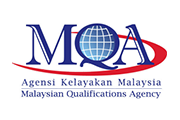- Fully accredited by the 365体育官网_365体育备用【手机在线】 Accreditation Council (EAC) Malaysia.
- Lectures by leaders of the engineering industry.
- Recognized by Board of Engineers Malaysia
- Internships provide students with industry-relevant skills and networking opportunities.
RM90,783.00
Year 1
- Professional Development
- Civil 365体育官网_365体育备用【手机在线】 Materials
- 365体育官网_365体育备用【手机在线】 Geology
- Soil Mechanics
- 365体育官网_365体育备用【手机在线】 Drawing
- 365体育官网_365体育备用【手机在线】 Mathematics 1
- 365体育官网_365体育备用【手机在线】 Mathematics 2
- 365体育官网_365体育备用【手机在线】 Statics
- Introduction to Programming
- University English
Year 2
- Geotechnical 365体育官网_365体育备用【手机在线】
- 365体育官网_365体育备用【手机在线】 Hydrology
- Analytical Methods
- Civil 365体育官网_365体育备用【手机在线】 Drawing
- 365体育官网_365体育备用【手机在线】 Dynamics
- Fluids Mechanics
- Mechanics of Materials
- Structural Analysis
- Surveying
Year 3
- Structural Analysis II
- 365体育官网_365体育备用【手机在线】 Perspectives
- Construction Technology
- Environmental 365体育官网_365体育备用【手机在线】
- Design of Structural Steelwork
- Estimating & Contract
- Foundation in 365体育官网_365体育备用【手机在线】
- Highway & Traffic 365体育官网_365体育备用【手机在线】
- Industrial Training
- Open Channel Hydraulics
- Reinforced Concrete Design
Year 4
- Integrated 365体育官网_365体育备用【手机在线】 Design Project
- Elective I
- Elective II
- Final Year Project I
- Final Year Project II
- Water and Waste Water Systems
- 365体育官网_365体育备用【手机在线】 Economics
- Project Management for Civil 365体育官网_365体育备用【手机在线】
General Elective**
- Advanced Highway 365体育官网_365体育备用【手机在线】
- Advanced Steel Design
- Reinforced and Prestressed Concrete Design
- Water 365体育官网_365体育备用【手机在线】
MPU subjects
1. Compulsory
- Appreciation of Ethics and Civilisations (Local Students) / Communicating in Malay 2 (International Students)
- Philosophy and Current Issues
- Integrity and Anti-Corruption
- Community Service
- Bahasa Kebangsaan A*
2. Electives (choose one)
- Social Entrepreneurship
- CSR Excellence: Building Responsible Enterprises
* For Malaysian students who do not have a credit in SPM BM.
** For offering of electives, please consult the Head of Programme.
| Campus | Local Students | International Students |
| INTI International University | Approx. RM 90,783 | Approx. RM 90,783 |
| Entry Level | Entry Requirements |
|---|---|
| STPM | Pass STPM and minimum Grade C in Mathematics and 1 natural sciences subject (Physics / Chemistry / Biology) |
| A-Level | Pass A-Level and minimum Grade C in Mathematics and 1 natural sciences subject (Physics / Chemistry / Biology) |
| UEC | Minimum five (5) subjects at Grade B including Mathematics and 1 natural sciences subject (Physics / Chemistry / Biology) |
| Local Matriculation | Pass Matriculation and a minimum CGPA of 2.0 in Technical or Science Stream |
| Foundation | Pass Foundation and a minimum CGPA of 2.0 in Technical or Science Stream |
| Diploma / Advanced Diploma / Degree | A minimum CGPA of 2.0 in a related field ? The amount of credit transfer given is subjected to the school’s discretion after reviewing the programme, transcript, and syllabus. ? The maximum credit transfer available depends on the limits set by the programme accreditation body (EAC). |
| American Degree Transfer Programme | Completion of the programme and a minimum CGPA of 2.0 |
| International Baccalaureate | A minimum score of 26 / 42 points and pass in Mathematics and 1 natural sciences subject (Physics / Chemistry / Biology) |
| SACE | A minimum ATAR of 60 and pass in Mathematics and 1 natural sciences subject (Physics / Chemistry / Biology) |
| NSW(HSC) | A minimum ATAR of 60 and pass 10 units including Mathematics and 1 natural sciences subject (Physics / Chemistry / Biology) |
| Australian Matriculation (AUSMAT) | A minimum ATAR of 60 and pass in Mathematics and 1 natural sciences subject (Physics / Chemistry / Biology) |
| Ontario Secondary School Diploma / Canadian Pre-University (CPU) | A minimum average of 60 and pass in Mathematics and 1 natural sciences subject (Physics / Chemistry / Biology) |
| Others | Other equivalent qualifications as recognised by the government of Malaysia. |
Note: International students are subject to meet entry requirements that reflect similar qualifications and experience as stated above.
To find country-specific entry requirements visit our international entry requirement page
INTI International University
- January
- May
- August
Note: International students are subject to placement guidelines. Please check with a student counsellor.
You can launch your career in one of these fields:
- Construction manager
- Contracting or consulting civil engineer
- Environmental engineer
- Geotechnical engineer
- Patent attorney
- Public health engineer
- Sustainability consultant
- Transport engineer
- Urban planning engineer
- Urban designer
The Civil 365体育官网_365体育备用【手机在线】 Discipline expects its alumni, who after being involved in the industry or academia for at least 4 years to have mastered the following Program Educational Objectives (PEO)
PEO1: An analytical and critical civil engineering graduates who applies complex problems knowledge and skills based on professional standards in the discipline.
PEO2: An ethical professional in civil engineering who demonstrates effective communication, leadership and teamwork skill to provide services and sustainable solutions to the wider community.
PEO3: Demonstrate interpersonal and entrepreneurial skills for lifelong learning, research and career development in line with national education philosophy.
The Civil 365体育官网_365体育备用【手机在线】 Discipline has adopted a set of 12 programme outcomes, which upon successful completion of the programme, graduates will be able to:
PO 1: 365体育官网_365体育备用【手机在线】 Knowledge - Apply acquired fundamental knowledge of science and engineering to solve complex engineering problems with emphasis on field of Civil 365体育官网_365体育备用【手机在线】.
PO 2: Problem Analysis - Identify, formulate, conduct research to analyse complex engineering problems using principles of mathematics, science and engineering.
PO 3: Design/Development of Solutions - Design to solve complex engineering problems and systems, to satisfy requirements for public health and safety, cultural, societal, and environmental considerations.
PO 4: Investigation – Investigate into complex engineering problems using research-based knowledge and methods to provide sound conclusions.
PO 5: Modern Tool Usage - Apply correct techniques, resources and updated engineering and IT tools, to solve complex engineering problems, with knowledge of limitations.
PO 6: The Engineer and Society - Apply contextual knowledge and take responsibility to assess societal, health, safety, legal and cultural issues, societal, in professional engineering practice and solutions to complex engineering problems.
PO 7: Environment and Sustainability - Understand the impact of professional engineering solutions in societal and environmental conditions and demonstrate the knowledge for sustainable development and solving complex engineering problems.
PO 8: Ethics - Apply ethical principles and commit to professional ethics and responsibilities and norms of engineering practice.
PO 9: Individual and Team Work - Able to function effectively as an individual, and as a member or leader in diverse groups of professionals and in multi-disciplinary environments.
PO 10: Communication - Communicate effectively on complex engineering activities with engineering community and with general public, to comprehend and produce effective reports and design documentation.
PO 11: Project Management and Finance - Apply knowledge of engineering and management principles to one’s own work, as a member and leader in a team to manage multi-disciplinary projects.
PO 12: Lifelong Learning - Recognize the need for, and have the preparation and ability to engage in independent and lifelong learning in the broadest context of the technological change.
The curriculum encompasses the knowledge profile as summarised in the list below:
WK 1: A systematic, theory-based understanding of the natural sciences applicable to the discipline.
WK 2: Conceptually-based mathematics, numerical analysis, statistics and formal aspects of computer and information science to support analysis and modelling applicable to the discipline.
WK 3: A systematic, theory-based formulation of engineering fundamentals required in the engineering discipline.
WK 4: 365体育官网_365体育备用【手机在线】 specialist knowledge that provides theoretical frameworks and bodies of knowledge for the accepted practice areas in the engineering discipline; much is at the forefront of the discipline.
WK 5: Knowledge that supports engineering design in a practice area.
WK 6: Knowledge of engineering practice (technology) in the practice areas in the engineering discipline.
WK 7: Comprehension of the role of engineering in society and identified issues in engineering practice in the discipline: ethics and the professional responsibility of an engineer to public safety; the impacts of engineering activity: economic, social, cultural, environmental and sustainability.
WK 8: Engagement with selected knowledge in the research literature of the discipline.
INTI International University: (R3/526/6/0040)(06/30)(MQA/FA4368)


